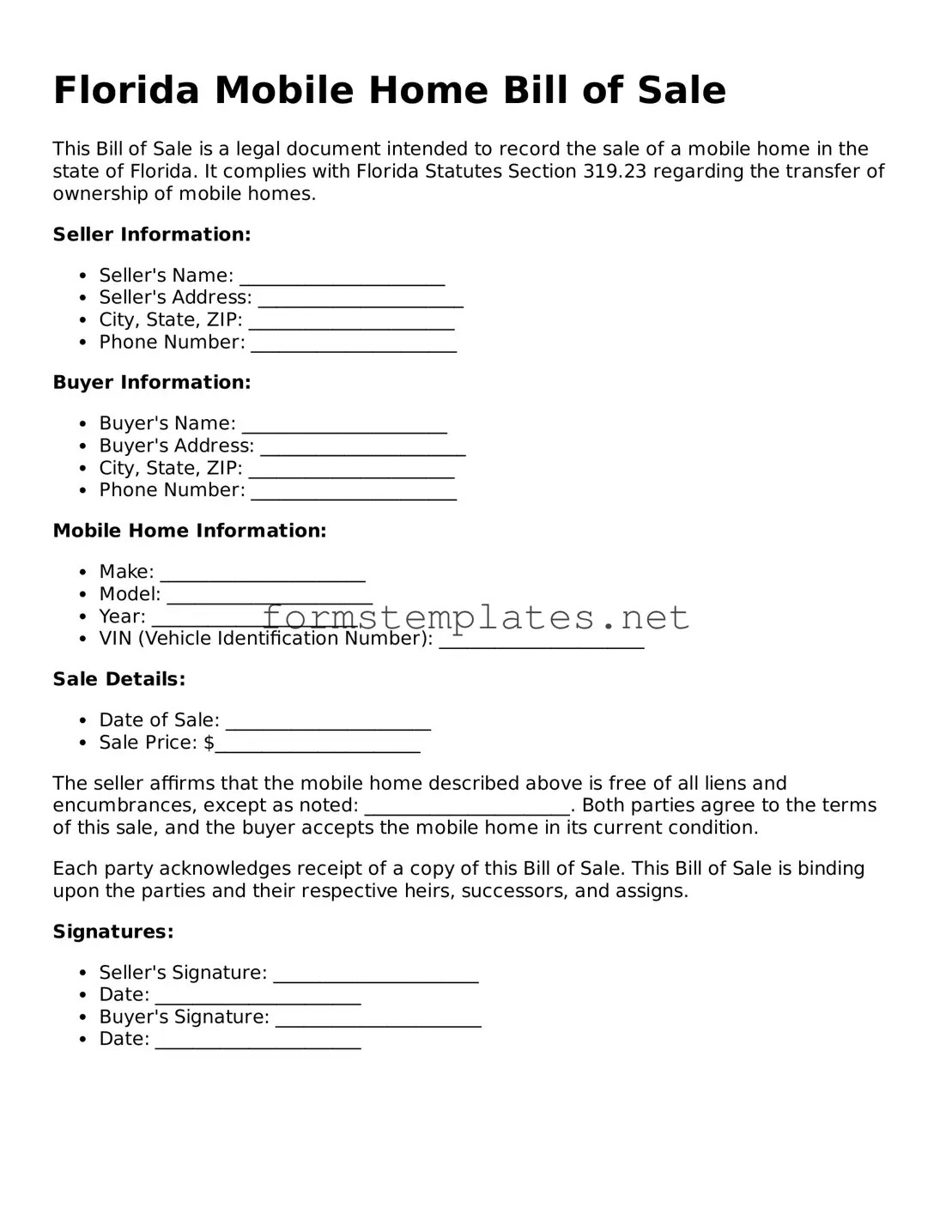Attorney-Approved Florida Mobile Home Bill of Sale Template
The Florida Mobile Home Bill of Sale is a legal document that facilitates the transfer of ownership of a mobile home from one party to another. This form serves as proof of the transaction and outlines essential details such as the buyer, seller, and the mobile home's specifications. Understanding this form is crucial for ensuring a smooth and legally compliant transfer process.
Open Editor Now

Attorney-Approved Florida Mobile Home Bill of Sale Template
Open Editor Now

Open Editor Now
or
⇓ PDF Form
Your form still needs attention
Finalize Mobile Home Bill of Sale online — simple edits, saving, and download.